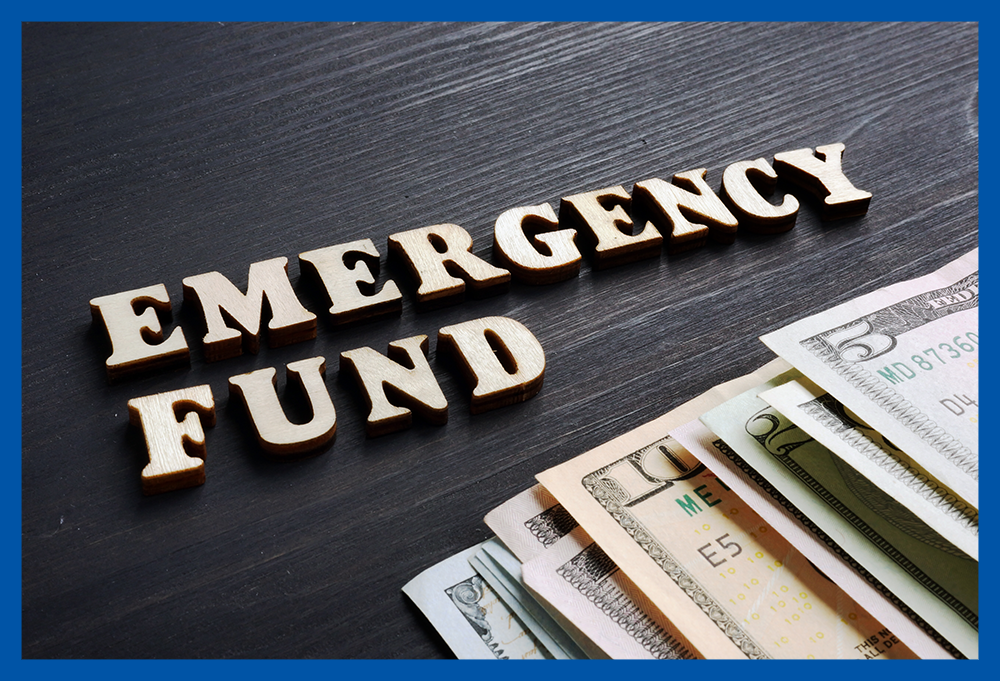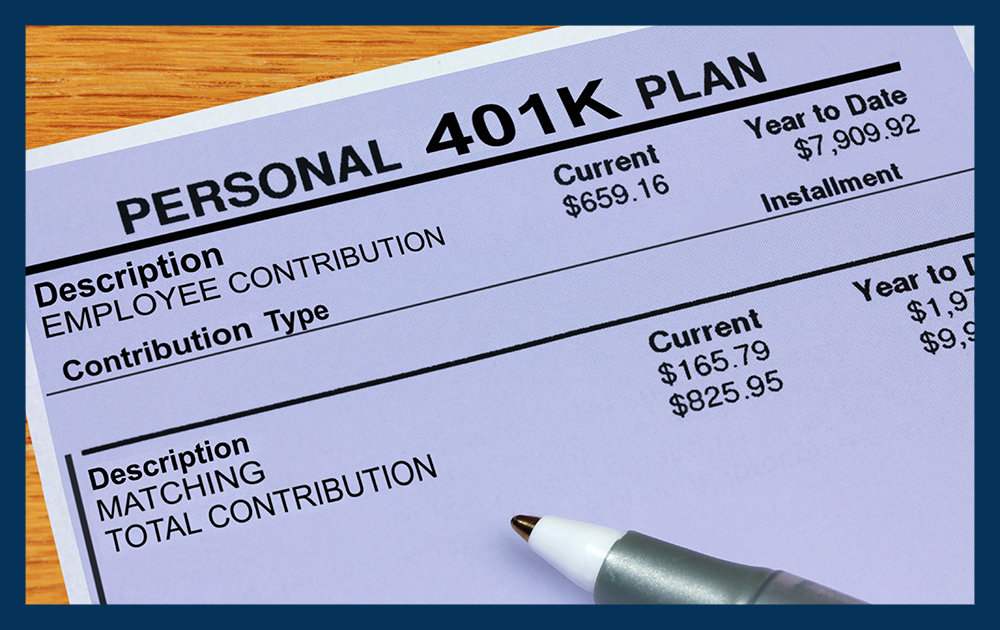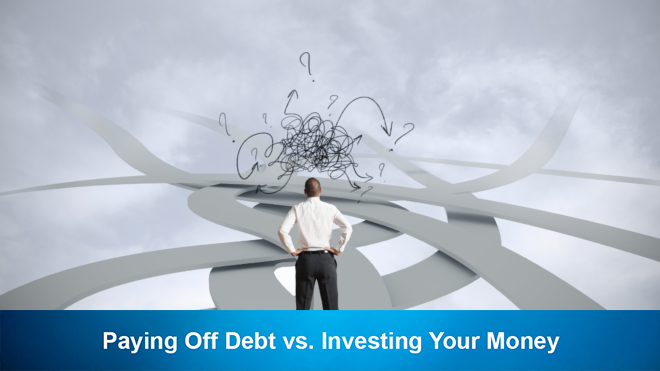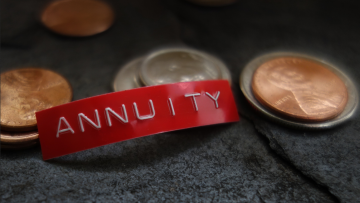The age-old dilemma; use your extra cash to invest or pay off existing debt. Either choice can make sense depending on your unique circumstances. Let’s delve a little deeper…
Should you pay off your debt or invest your money? It’s a question many of us have asked ourselves at some point in life. Both options are considered to be a worthy goal and striking the perfect balance looks different for everyone.
Those who find themselves with extra cash have a tough decision to make. Should they use it to pay off outstanding debt, or use it “smartly” and make the money work for you via investing? If you have debt you’re certainly not alone. Nationally, household non-housing debt is at the highest level in 16 years.
No matter what your goals are, the answer is ultimately doing both. Here’s a look at paying off debt vs. investing your money.

In general, the rule of thumb is that you should do both: pay debts and invest. In fact, try to consistently contribute to three buckets—debt payoff, retirement, and an emergency fund. Even if that means you can only contribute only a handful of cash each month to retirement or savings in addition to debt payoff, it’s worth doing.
Both full debt repayment and adequate retirement planning are important, but it’s not an either-or situation. If you overcommit to investing and only make minimum debt payments, you could wind up paying too much in interest over time, which can hamper your ability to buy a home or start a family. If you neglect investing entirely, however, you may fall short of your retirement goals. Both investing and paying off debt are essential financial goals. Let’s take a look at the key differences.
Investing is a way to set money aside for the future, ideally in an investment vehicle, such as stocks, bonds, or mutual funds, that will grow in value over time. Debt, on the other hand, represents money you’ve already spent and that a lender is charging you interest on. Left unpaid, that debt will grow and grow, with interest charges adding to your balance and incurring interest charges of their own.


Before funneling cash into debt or investments, you need to make sure you have an emergency fund in place. Cash reserves have never been more essential to protecting your finances. Your emergency fund should aim to cover three to six months of expenses—perhaps as much as a year if your job isn’t secure. That money should be kept in a safe, easily accessible account, which will spare you from having to tap retirement funds or run up your credit card balance for unexpected bills.
By setting money aside each month it’s less likely these curveballs will increase your debt. If you have high-interest debt, you may consider a slightly lower number — at least until your most expensive debt is gone.


Your credit utilization rate is also important to think about when deciding how aggressively to go after debts. The higher your credit balances, the lower your credit scores. If you don’t get your credit use back under control, you’ll pay higher interest rates when you need to borrow again.
If a card balance exceeds 25% of your available credit limit—and you can only afford the minimum payment on all debts. It’s always best practice to take a step back and review your budget. Lowering your credit utilization rate and improving your credit score can make your life easier in a lot of ways.


Taking advantage of a 401(k) contribution match is important regardless of your debt situation because it essentially provides you with a rate of return of up to 100%. It also reduces your taxable income and, most important, is one of the easiest ways to prepare for retirement. In general, you should avoid carrying debt into retirement—but some debts are worse than others.
In a worst-case scenario, federal student loan collection can result in garnishment of Social Security income. However, Social Security is typically exempt in bankruptcy proceedings. Never abandon your retirement savings altogether, even for debt paydown, especially as you approach the end of your working life.

Paying down debt vs. investing doesn’t have to be an either/or decision. A balanced approach to wealth management serves both today’s needs and tomorrow’s goals. For some that may mean paying off some debt today while simultaneously investing for the future.
Your own needs and circumstances will be unique. Evaluate alternatives and find an approach that fits your situation and goals. Finally, work with your financial advisor at CKS Summit Group to create an investment strategy suited to your individual needs.
Asking the right questions enables us to offer retirement income options for you. So, schedule your complimentary strategy session with us here today.



